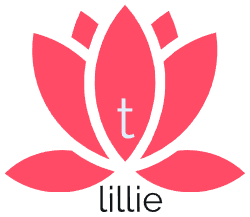Have you heard the joke about how introverts unite?
Separately and in our own homes, of course.
In joking there is truth. In the relentless din of our busy world, those of us with introverted hearts often find ourselves yearning for the serenity of silence and the solace of solitude.
Yet, we’re met with a reality brimming with ceaseless chatter and daunting social demands. The church, our sanctuary for spiritual respite, can sometimes mirror the world’s tumult rather than offer a peaceful retreat. Amidst this, we introverts wonder, “How do participate in the Body of Christ, the Church, as God intends, when I prefer to be by myself?”
And such a question doesn’t yield simple answers or swift fixes. Instead, it leads us to something far greater.
Because the answer we truly seek is found in hearing God’s call to us and transcending our introverted tendencies, if only to prepare us to embrace a love that is even greater than our fondness for tranquility and isolation.
God’s love is tangible and transformative. It readies us to undertake the tasks He has set before us. As the prophet Jeremiah professed:
Heal me, O Lord, and I shall be healed; save me, and I shall be saved; for you are my praise.
Jeremiah 17:14
Reflecting on my own journey, I often laugh at God’s surprising choice in calling me to be a priest’s wife. To be a visible beacon in ministry, with all its inherent duties and chances for communion, makes me feel a blend of awe and bewilderment: “Why have I been blessed with this remarkable calling?” and also “Lord, how could You have possibly chosen me for this vocation?”
Many clergy spouses share my inner conflict, as I hear them voicing a similar question: “With 8 billion people scattered across your good creation, wasn’t there a better choice than me, Lord?”
For all of my fellow introverts walking the many different paths of ministry, here are some thoughts that may help to guide you.

Understanding Our Introversion
Some of us readily identify with the term “introvert,” yet we often misunderstand its essence. Unraveling introversion involves peeling back the manifold layers which surround its core, to understand and acknowledge the truths that dwell there. It’s about discerning true reality from our often-distorted illusions, through God’s perfect and loving lens.
The only way to truly comprehend ourselves is to begin with God, our Father and Creator, who intimately knows every facet of our existence. As the Psalmist declares:
Lord, you have searched me out and known me;
you know my sitting down and my rising up;
you discern my thoughts from afar.You trace my journeys and my resting-places
and are acquainted with all my ways.Indeed, there is not a word on my lips,
Psalm 139:1-4
But you, O Lord, know it altogether.
God perceives not only our current selves in all our current states of human frailty, but also knows the potential of what we can become—the perfect person we will be if we choose to walk His path. In other words, He wants to help us abandon all the imperfect things about us, to make room for our true selves.
He is the only One who knows what’s wrong, and what’s good about each of us. Since even we ourselves are often quite confused about which is which.
Thus, seeking counsel from our Divine Author and loving Father is always the essential first step. God has promised that He will give us every good thing that we ask from Him.
As the scriptures assure us:
Ask, and it will be given to you; search, and you will find; knock, and the door will be opened for you. For everyone who asks receives, and everyone who searches finds, and for everyone who knocks, the door will be opened.
Matthew 7:7-8
Those who seek answers to all of life’s questions will find them only in the One who holds all knowledge. God knows what’s true and what’s false because He created Truth itself.
If we ask, He will show us what we need to know.
This reliance on God brings great comfort, knowing that God knows and will distinguish the inherent aspects of my introversion- those that are part of my person- from aspects that may have been shaped by worldly experiences in an unhealthy way, and are therefore, in need of His healing.
Introversion can arise from all kinds of factors. Genetics, personality, personal preference, or a result of our unique interactions with the world. Sometimes they are linked to physiological or biochemical factors—variations in hormones like testosterone, endorphins, cortisol, or dopamine. These internal factors can influence our external ones. Simply put, if being in crowds is too draining, we’re more likely to stay home.
So what does that mean?
Recognizing that we may have an excess or deficiency of certain chemicals in specific situations can be enlightening. It shifts the question from “Why am I so awkward at social gatherings?” to an understanding that my amygdala may be more active than other people’s. It may be a biological or genetic trait, not a personal shortcoming.
While I’m not a scientist or therapist, I know from experience the benefit of observing our reactions in various environments. It can help God guide us to comprehend when and why we feel as we do, thereby informing our prayers.
This self-awareness is challenging. Sometimes we’ve developed strategies; coping techniques, reactions, and even whole personalities to manage our introversion simply so we can function in the world.
And we’ve believed the lie that sociability is something that it’s not.
Here’s the truth: Our behavior at social functions should be accepted with love and patience, not graded on some people-pleasing scale. Being a bit awkward or tongue-tied isn’t the calamity the world makes it out to be, nor should it be the cause of anxiety on sleepless nights, as we tend towards replaying and lamenting every past embarrassing moment. Being exhausted or overwhelmed by people isn’t something to disdain, but to understand.
The real calamity- the only true problem- is choosing to refuse God’s love and healing. In other words, to choose not to follow God and instead, prefer to follow our imperfect human will in any given situation. That is the only problem that God can’t heal, simply because we won’t let Him. Anxiety, fear, awkward interactions, or insecurity? These things tremble at God’s healing command.
God doesn’t desire us to simply get by in life; He yearns for us to break free from the shackles of fear and societal judgment that can dominate our lives.
It’s fascinating how varied we all are. Yet, God’s aspiration for each of us is the same: complete healing from all that doesn’t serve His good purpose.
As such, it’s vital to distinguish between a God-given preference for quiet, which doesn’t necessarily hinder genuine ministry, and the fear and insecurity that interferes with the work that God is calling us to do. There is ministry available for the reserved and the boisterous alike. However, sometimes introversion and social anxiety aren’t actual personal preferences, but responses to past traumas, which we’ll explore further.
God’s wish for us is to offer ourselves wholly to Him and His kingdom’s work, joyfully and without reservation. If we so choose, His work within us is just beginning!

The Journey to Wholeness: Embracing Quietude and Community in Ministry
It’s essential to recognize the distinction between a natural preference for quiet, and the introversion or social anxiety that stems from past traumas. These are not mere preferences but reactions to experiences that have left deep imprints on our psyche.
Because again, God’s aspiration for us is to surrender ourselves entirely to Him and His kingdom’s work, with joy and freedom. His intention for us surpasses mere survival; He offers the gift of complete restoration.
Grasping Divine Restoration
What we label as ‘introversion’ might be a defense mechanism against situations we feel ill-equipped to handle, particularly those from our formative years. At one time, we needed to withdraw physically or emotionally to navigate and survive our daily lives which felt overwhelming and unmanageable. These practices served us well, in that they got us here, to this moment where healing is not only possible, but promised.
However, they may not be serving us well anymore. They may instead be hindering us from fulfilling that ministry that God has given to us.
Our introverted tendencies may conceal deep-seated fears, hurts, insecurities, and remnants of past painful interactions, which God would like to take from us through His healing power.
The ease of solitude, instead of being a good thing in itself, can become instead a way to avoid the discomfort and pain of the company or rejection of others. Yet, this avoidance, while momentarily comforting, can ultimately stunt the spiritual growth we can only gain in being around others.
We are meant to thrive as God’s children- not just survive and get by.
To do that, we need the profound restoration that only Christ can offer. If we fail to develop God-centered, healing responses to life’s challenges, we can easily default to temporary fixes that can be detrimental in the long run. Embracing solitude instead of participating in Christian community is to miss the essence of His plan for us.
God didn’t create us for isolation. He designed us to be integral parts of His perfect kingdom. He invites us to be His family, and a part of the Body of His Son—united in peace and love with Him and each other. His vision for us is a life of complete healing, wholeness, and renewal- all together, as one.
An honest self-examination, with God’s guidance, can reveal our true motivations and fears. Asking ourselves, “Do I want true healing?” and “Is God calling me to something greater than how I’m living now?” can lead us toward a more fulfilling path.
The Heart of Divine Healing
God’s healing is comprehensive, targeting the real root of all our afflictions—sin. Sin, the antithesis of divine goodness, can only be remedied by God’s grace and forgiveness. This healing frees us from all the things that are “wrong” in our lives. God invites us to confess, repent, and receive His abundant forgiveness and mercy.
However, the harm caused by sin isn’t limited to our own actions. We’ve all been wounded by the sins of others, from minor slights to significant traumas. Yet, the power of God’s redemption knows no bounds. No sin is too great for His redeeming love.
As the psalmist says:
Our sins are stronger than we are,
Psalm 65:3
but you will blot them out.
And John gives us this essential Truth in his first letter:
If we confess our sins, he who is faithful and just will forgive us our sins and cleanse us from all unrighteousness.
1 John 1:9
The more we participate in forgiveness and grace, the more it abounds.
God’s desire is for us to be fully healed from all that has gone amiss within and outside of us, and to embrace goodness so wholeheartedly that we gladly turn away from sin at every opportunity.
However, our healing is complete only through one avenue- sharing with all others the same love and forgiveness granted to us by God.

A Life of Healing
Embracing God’s gift of healing involves a life of faithfulness—daily prayer, scripture study, and repentance; aligning our lives with His will to experience the fullness of His healing grace.
Peter affirms:
He himself bore our sins in his body on the cross, so that, free from sins, we might live for righteousness; by his wounds you have been healed. For you were going astray like sheep, but now you have returned to the shepherd and guardian of your souls.
1 Peter 2:24-25
Jesus endured suffering to heal us from the sickness of sin, and through Him, God’s work of healing is complete. In other words, the more we participate in this reality – the more we seek and live into healing – the more we are healed.
As all of us- introverts, extroverts, and everyone in between- continue our ministry, let us reflect, pray, and seek God’s guidance. Human perfection isn’t the goal; but instead it’s the courage to love and serve God and neighbor amidst our fears and struggles. We’re called to embrace this mission with gratitude, joy, and humility, becoming conduits of God’s forgiveness and compassion. Meaning, it is nothing less than God’s own perfection we seek. And He alone can bring such a pursuit to its desired end.
Our world, afflicted by unrecognized sin, yearns for the healing grace that God generously bestows through us. We’re called to be vessels of this grace, allowing the restoration we’ve received to touch the lives of those around us.
So, I go muddling on as an introvert, persisting in this ministry that God has graciously given to me- not as I necessarily want to be, but as God is making me through His gift. Awkward at times, forgetful, thoughtless, oblivious, overwhelmed- yet, through this journey, I am healed by God’s grace as I eagerly wait for God to show me who I truly am.
As Paul writes:
So we do not lose heart. Even though our outer nature is wasting away, our inner nature is being renewed day by day. For this slight momentary affliction is preparing us for an eternal weight of glory beyond all measure, because we look not at what can be seen but at what cannot be seen; for what can be seen is temporary, but what cannot be seen is eternal.
2 Corinthians 4:16-18
Let us turn to the Divine Healer, the source of all restoration, and be open to receiving nothing less—so that we may extend this blessing of healing to a world in desperate need.
May God bless you in your ministry, whether you’re an introvert or an extrovert. May the holy and undivided Trinity guard your body, save your soul, and bring you safely to His heavenly country, where He lives and reigns forever and ever. Amen.

